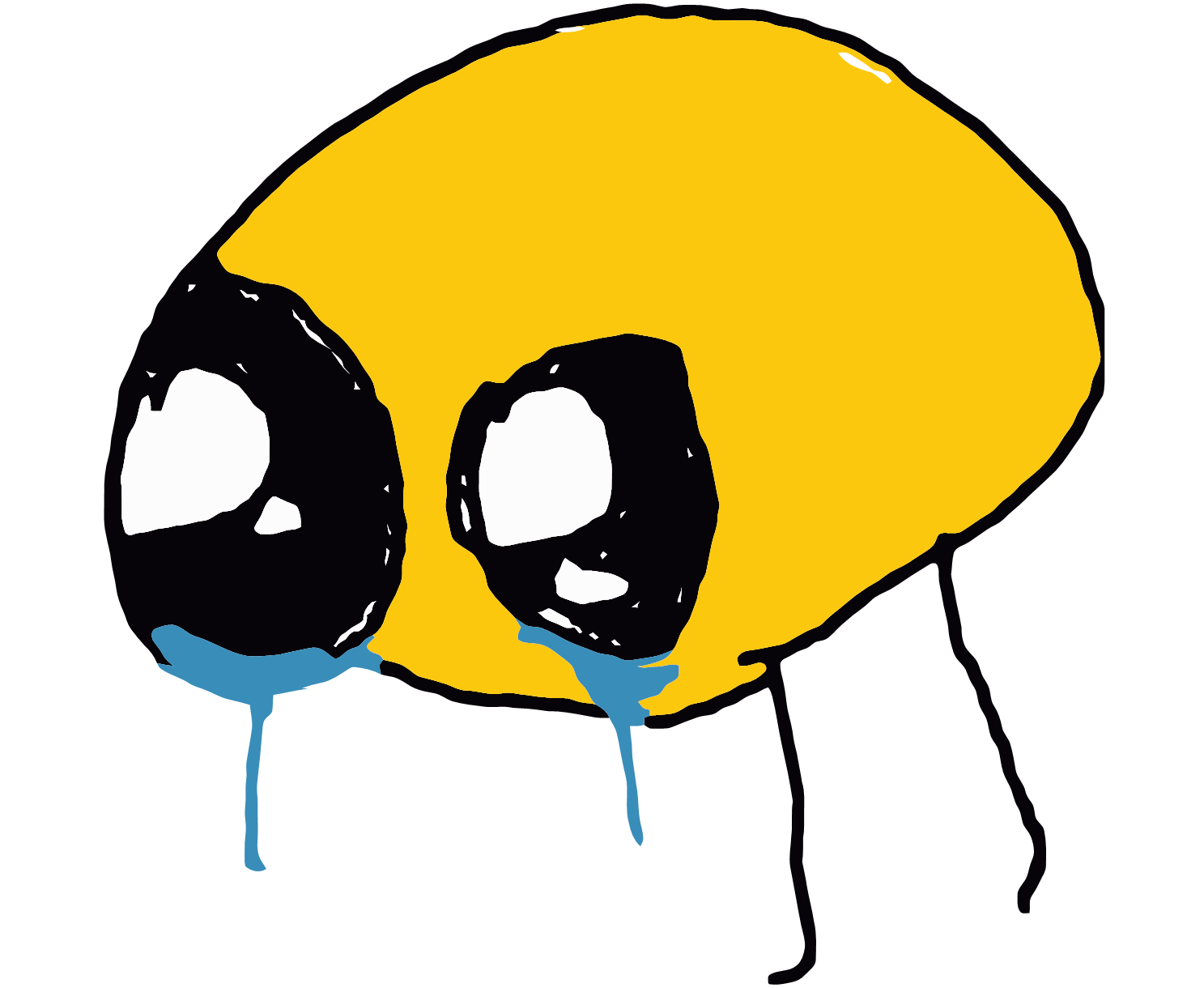Scott Adams has probably failed at more things than anyone you’ve ever met. So how did he go from hapless office worker and serial failure to the creator of Dilbert, one of the world’s most famous comic strips, in just a few years?
No career guide can offer advice that works for everyone. Your best bet is to study the ways of others who made it big and try to glean some tricks that make sense for you. So here Scott Adams tells how he turned one failure after another - including a corporate career, inventions, investments, and two restaurants - into something successful. Along the way he discovered some unlikely truths. Goals are for losers; systems are for winners. Forget ‘passion’; what you need is personal energy.
Dilbert
Me looking at this as a person with disabilities that started off in a poor neighborhood in the global south only to fall deeper into failure and live with the fear of being homeless

IKR, it’s insulting
and kind of painful when they rub it all over your face like that

he worked in an office, had a shit boss, so he drew a comic about his shit boss and got incredibly incredibly lucky. hey! i work in an office…
Started a comic strip about office drudgery in the 90’s, damn what a visionary who deserves to be heard- who else could have done that?
The infuriating thing is, there are so, so many web comics out there that are so much better, but because they were made in the time of history where that won’t make you rich and famous they get lost to time.
Reminds me of the days I enjoyed getting lost in the world of sluggy freelance. The holiday wars and the frozen time storyline were always my favorite.
 meeemorrryyyyyyyy…
meeemorrryyyyyyyy…
This feels like yesterday


apparently it’s still going, too. that takes a lot of dedication all around. i think i stopped reading around the voltron parody storyline, which admittedly made good use of the infinite canvas for a site gag about how repetitive the old cartoon could be.
o the shining promise of the early internet! an infinite canvas plastered over with paywalls and billboards.

Honestly I should go out of my way to buy the physical edition of his comics just to thank him for the years of free entertainment during its peak days.
 scott adams’ book
scott adams’ book pete abrams’ books
pete abrams’ books
I swear, these types and their pseudo positivity are just taunting us.
If you’re poor, you need to be perfectly perfect and be the top 1% performer in college or else you’ll never start your life.
Unironically I feel like homer’s nemesis. All my enemies never face hardship ever because their dumb luck makes them invincible. Luck is wasted on the lucky.
Frank Grimes is an entirely plausible and perfectly relatable character if for 2 changes: Homer ought to be a billionaire (maybe 10-millionaire then) and Homer’s goal, at least internally, ought to be to have Grimey acknowledge his superiority, instead of dumbly wanting to be friends.
Grimes is an average person as seen by the people who write for The Simpsons. They can see how unimaginably lucky they got being the creators of a cultural sensation and getting to coast on that forever (Homer being paid because he’s too hapless to do his safety inspection job properly), and they can see that other people work twice as hard as they do and never make it (grimes), and they can even gesture at a systemic critique (ie by having Burns be every bit as lazy and hapless as Homer except for being the person who controls all the money), but they can’t really commit to the full disavowal of the system that put them where they are and the ideology that that system rewards them for having.
I always feel like there’s a strong survivorship bias at work in these things. Some people get lucky and fall through the cracks, so that’s what people focus on. But ignore all the hundreds of thousands that did everything right but still didn’t make it.
For sure. I know thousands of people buy lottery tickets and lose their money, but I can’t help to think it must be nice to hit the jackpot, or at least win big enough to not worry about the immediate future.
What happened to his ass cancer? Did he fail at that too?
Jason Pargin has a good bit about this.
Even for professions that are explicitly skill based like professional sports, the top performers just have no idea why they’re successful. They’re surrounded by people who were just as promising and train just as hard, but they’re able to perform better. Do they have some weird genetic adaptation that lets them be 0.01% more accurate in their timing? Did some quirk in their training give them an advantage in their muscle memory? And as a result, they tend to become pretty superstitious, keeping routines exactly the same between training regiments and games.
Now take that and transplant it into professions where it’s less skill and more luck. You get the same dynamics amplified. Ask a business person why they’re successful and they’ll give you generic advice like “be conscientious” or “show up to work on time every day”. Or they’ll give you nonsense advice that has nothing to do with business like “wake up at 5 am” or “start your day off with 3 raw eggs”. Stuff that’s just part of their routine. They just don’t have any idea why they are where they are so they make stuff up.
The brain trains like a muscle does. Deliberate practice and consistent application of new technique and methodology result in it adapting in various ways. The thing is that the pathway matters too in order to adapt to the maximum possible capability.
Think of it like building a tower. If the foundation of the tower is a dodgy pillar, then the maximum height you can build on top of that pillar is stunted. If the foundation is a huge pyramid base though, the height you can build to is much much higher.
This gets more and more complex towards the very very extreme. The specific change that is necessary in order to then be able to place more blocks on top is harder. Not only that, but in some cases you have to pull pieces out of the base in order to add more on top because parts of the base are no longer applicable and actually actively detrimental at the highest level, but were totally necessary when at a lower level.
This becomes a complex jenga tower of finding what pieces to pull out and what to construct in order to push those extra few meters higher. And some people just lucked into the right path, while others systematically and methodically worked their way to it.
This is why occasionally you see a huge leap in a sport where someone found some new change to make that actually caused a whole new level to open up.
That sort of reminds me of videogame speedrunning and how even something like Ocarina of Time, Super Mario Bro’s, or even Tetris is still relevant and improving.
Right. It’s technique. Even like rote memorisation tasks are improved upon by use of techniques and skills most people don’t even think of, like creating a memory palace.
There are very small optimisations that can have large effects, or large ones with small effects, and it all has to be considered holistically if you’re going to get the big gains that go next level.
Tennis players for example with seemingly next level capability are doing something the others are not doing, whether it’s in how they’re thinking, what they’re looking at, or how they’re positioning their foot to not lose a half second shifting their weight. There’s so many factors that are technique and players are not always totally capable of verbalising all of them, or they don’t want to because they know they’ll lose an edge. At the very top level in particular they’re all going to be completely hush about what the smallest things are that they do.
Happens in esports too. I’ve seen it first hand in fighting games.
If I have one suggestion for anyone trying to get better at something it’s to CHANGE SOMETHING. This sounds obvious but so many people don’t change anything, they grind and grind and grind but they’re fundamentally doing the same thing over and over. You gotta change the way you do it or you will eliminate all chance of discovery. The people that progress the fastest are the people who engage in experimentation to make discoveries.
Change something. Assess how it went. Assess how it might be better applied. Learn from it. Improve on the change. Keep changing things. This is deliberate conscious practice where you’re trying different things and seeking new ways to be better.
Kind of the story of my life
Seeing shit like this makes me determined to be more decisive and forceful in my communication, because this “erm, kind of the story of my heckin life, I guess
 ” is such a nauseatingly faux-quirky type of brainrot coming from someone with wealth and power who uses it to advocate for racial segregation and who i know for a fact thinks he’s better and smarter than me. So talk like it asshole, own your vanity.
” is such a nauseatingly faux-quirky type of brainrot coming from someone with wealth and power who uses it to advocate for racial segregation and who i know for a fact thinks he’s better and smarter than me. So talk like it asshole, own your vanity.Yeah I hate when corporate assholes try to be relatable
Systems are for winners
Agreed.

Hey, the revolution might have been messy, but Leninism is a system, and we won once…
Ok but for a more leftish-compatible look at success and failure I highly recommend H. John Benjamin’s “Failure is an option” esp. if you can get his narration on audiobook
just be born rich
Dillweed
Dilbert was completely fine for a long time, I even remember the cartoon being OK? Then he hit a certain level of success/wealth and his brain broke forever.
Was there a drastic change in Dilbert? I only followed it for a few years, where I remember it having some reasonably funny strips and some bafflingly boring ones, partly because the entire series seemed to mostly revolve around re-telling the same ~10 jokes
If this guy had any business sense he would know that restaurants are a terrible way to make money lmao
lmfao how do you fail at investments dawg, just keep enough in an index fund to stay solvent and use the surplus above that to make your bets with, and don’t put too many resources into startups, it’s literally a free lunch that is sacrosanct to capitalism
















